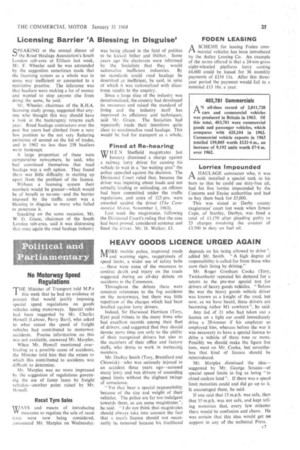Licensing Barrier 'A
Page 27

If you've noticed an error in this article please click here to report it so we can fix it.
SPEAKING at the annual dinner of the Road Haulage Association's South London sub-area at Eltham last week, Mr. F. Wheeler said he was astounded by the suggestion sometimes made that the licensing system as a whole was in some way inefficient or amounted to a restrictive practice. The inference was that hauliers were making a lot of money and wanted to stop anyone else from doing the same, he said.
Mr. Wheeler, chairman of the R.H.A. licensing study group, suggested that anyone who thought this way should have a look at the bankruptcy returns each year. Road haulage contractors over the past five years had climbed from a very low position to the not very flattering eminence of second on the list of trades, and in 1962 no less than 258 hauliers went bankrupt.
A large proportion of these were comparative newcomers, he said, who had convinced themselves that road haulage was a soft option. They found there was little difficulty in starting up apart from the problem of the licence.
Without a licensing system their numbers would be greater—which would be of benefit to no-one—and the barrier imposed by the traffic court was a blessing in disguise to many who failed to penetrate it.
Speaking on the same occasion, Mr. W. G. Grace, chairman of the South London sub-area, said it was distressing that once again the road haulage industry




















































































































